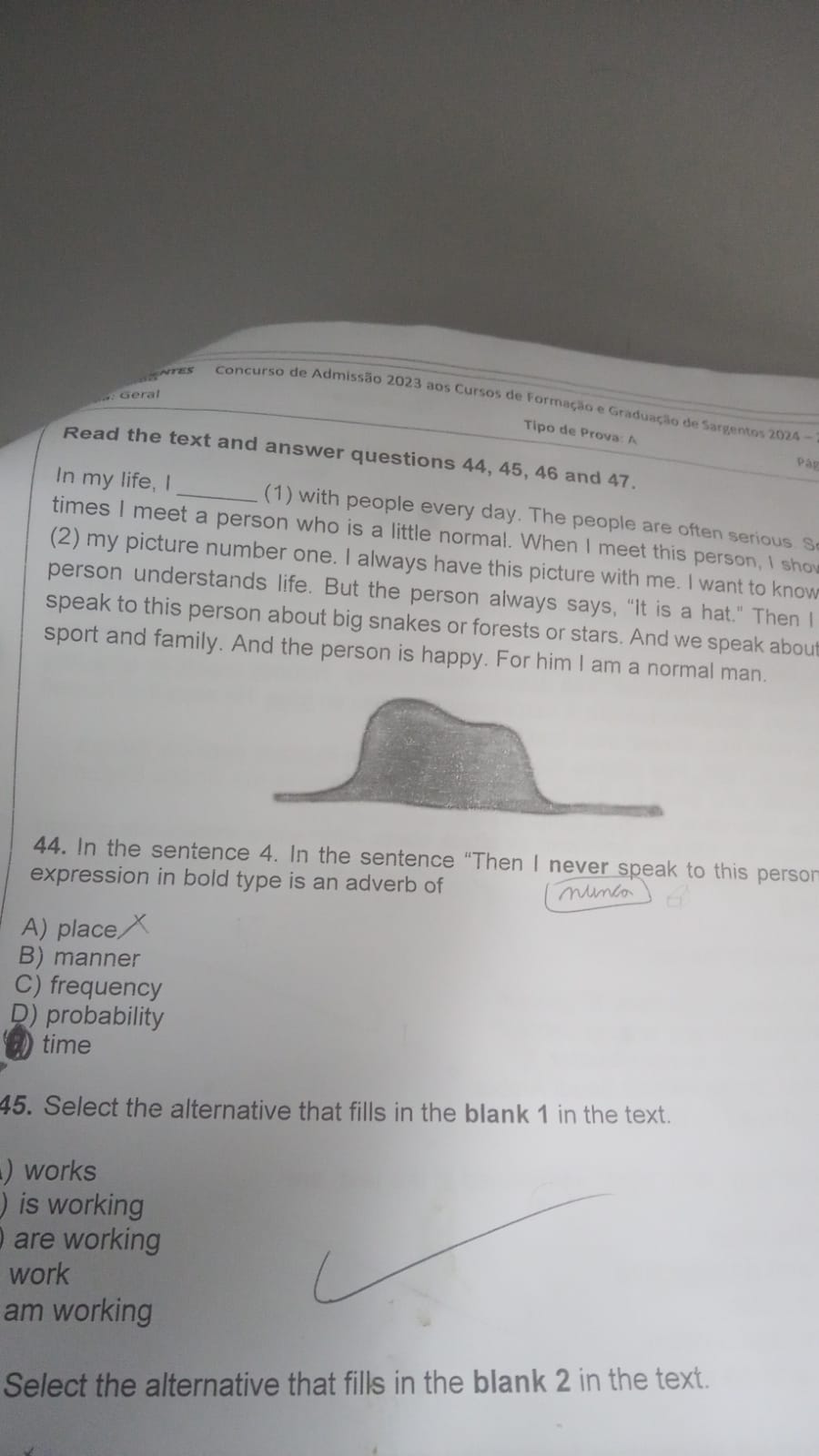 Can never ever be called an adverb of time or is it always frequency?
I found online that adverbs of time can express when, how long or how often.
Can never ever be called an adverb of time or is it always frequency?
I found online that adverbs of time can express when, how long or how often.
I never play volleyball. This is how often I play volleyball.
But "I'll never hurt" you sounds like when instead of how often.
Also, if what I read is right frequency adverbs are time adverbs. If anything, a word or phrase expressing when would be classified as a time adverb while a word or phrase expressing how often would be classified as a frequency adverb.
So
I'll never hurt you. Never is an adverb of time.
I never did anything in your detriment. Never is also an adverb of time.
I attached a picture of the question on a test that originated this question.
The full sentence on this test is
Then I never speak to this person about snakes, rocks and forests.
The answer to this question is frequency in my opinion. But I wondered if time is possible is some other context.
